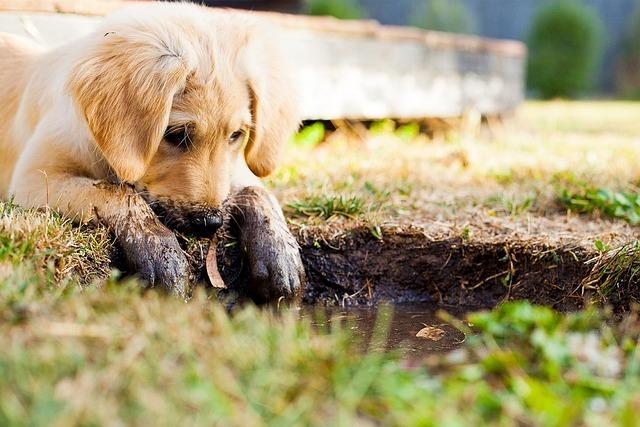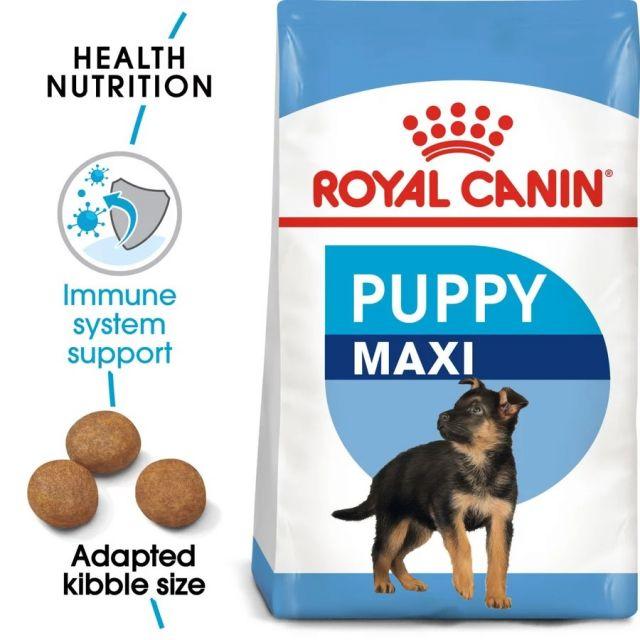Welcoming a new puppy into your home is an exciting adventure filled with playful moments and endless affection. As you embark on this journey, one of the most crucial aspects to consider is your puppy’s nutrition. Proper nutrition is the foundation for your puppy’s growth, health, and happiness. It ensures that they develop strong bones, a shiny coat, and a robust immune system. In this article, we will guide you through the essential components of puppy nutrition, helping you make informed decisions to support your furry friend’s development. Whether you’re a first-time pet owner or a seasoned dog lover, understanding the nutritional needs of your puppy is key to nurturing a thriving companion. Let’s explore what you need to know to give your puppy the healthiest start in life.
Understanding Essential Nutrients for Your Puppys Growth
Providing your puppy with the right nutrients is crucial for their development into a healthy adult dog. Proteins are the building blocks of their muscles, skin, and fur, making them an essential component of their diet. Ensure that their food contains high-quality animal proteins such as chicken, beef, or fish. Fats are another vital nutrient, offering a concentrated source of energy that supports brain development and keeps their coat shiny and healthy.
- Carbohydrates: While not as crucial as proteins and fats, they provide energy and aid in digestion.
- Vitamins: These are essential for a robust immune system and overall health, with a focus on vitamins A, D, and E.
- Minerals: Calcium and phosphorus are critical for bone development, while iron supports blood health.
It’s important to balance these nutrients in your puppy’s diet, which often means selecting a high-quality commercial puppy food specifically formulated to meet their unique needs. Always consult with your veterinarian to ensure your puppy’s dietary requirements are being met, especially if you consider homemade diets.

Crafting a Balanced Diet: Choosing the Right Foods for Your Furry Friend
Ensuring your puppy’s diet is balanced involves more than just filling their bowl with kibble. Puppies, much like humans, need a variety of nutrients to support their rapid growth and development. Start by choosing foods that are rich in high-quality proteins. Proteins are crucial for building strong muscles and tissues, so opt for ingredients like chicken, beef, or fish. Healthy fats are another essential component, providing the energy your puppy needs to explore the world. Look for sources like salmon oil or chicken fat, which are also beneficial for maintaining a shiny coat.
In addition to proteins and fats, a well-rounded puppy diet should include essential vitamins and minerals. These can often be found in a combination of natural ingredients and supplements. Here’s a simple checklist to guide you:
- Calcium and Phosphorus for strong bones and teeth.
- Omega-3 and Omega-6 fatty acids for brain development and a healthy coat.
- Antioxidants like vitamin E and selenium to support the immune system.
- Fiber from vegetables and grains for a healthy digestive system.
Remember, every puppy is unique, so it’s important to tailor their diet to their specific needs, considering factors like breed, size, and activity level. Consulting with a veterinarian can help you make informed choices, ensuring your furry friend thrives from the start.

Recognizing the Importance of Meal Timing and Portion Control
Just like us, puppies thrive on a schedule that respects their natural rhythms. Meal timing plays a crucial role in their overall well-being, aiding digestion and energy distribution throughout the day. Consistency is key, so aim to feed your puppy at the same times each day. This routine not only helps maintain a healthy metabolism but also establishes a comforting sense of structure. While it might be tempting to offer treats or snacks outside of designated meal times, it’s essential to resist the urge to avoid disrupting their digestive system.
- Establish a feeding schedule: morning, midday, and evening.
- Stick to consistent meal times to support digestion.
- Limit treats to training sessions or special occasions.
Equally important is portion control, which ensures that your furry friend receives the right amount of nutrients without overfeeding. Overfeeding can lead to obesity and related health issues, while underfeeding might stunt their growth. Use measuring cups or a kitchen scale to serve precise portions based on their age, weight, and activity level. Always consult with your veterinarian to tailor the portions according to your puppy’s specific needs. By paying attention to both timing and portion size, you’ll set your puppy on a path to a healthy, balanced diet.
- Use measuring tools for accurate portion sizes.
- Adjust portions as your puppy grows and becomes more active.
- Consult your vet for personalized feeding advice.

Supplementing with Care: When and How to Use Vitamins and Minerals
When considering vitamins and minerals for your puppy, it’s essential to approach supplementation with care. Puppies require a balanced diet to support their rapid growth and development, and while supplements can be beneficial, they should never replace a well-rounded diet. Before introducing any supplements, consult your veterinarian to ensure they align with your puppy’s specific needs.
- Know the Needs: Different breeds and sizes have varying nutritional requirements. A large-breed puppy may need different supplements than a small-breed one.
- Quality Matters: Choose high-quality supplements from reputable brands. Look for products that are specially formulated for puppies.
- Watch for Over-supplementation: More isn’t always better. Over-supplementation can lead to health issues, so it’s crucial to stick to recommended dosages.
Incorporating supplements wisely can enhance your puppy’s health, but always prioritize a diet rich in natural nutrients. With the right balance, your puppy will thrive and grow into a healthy adult dog.

